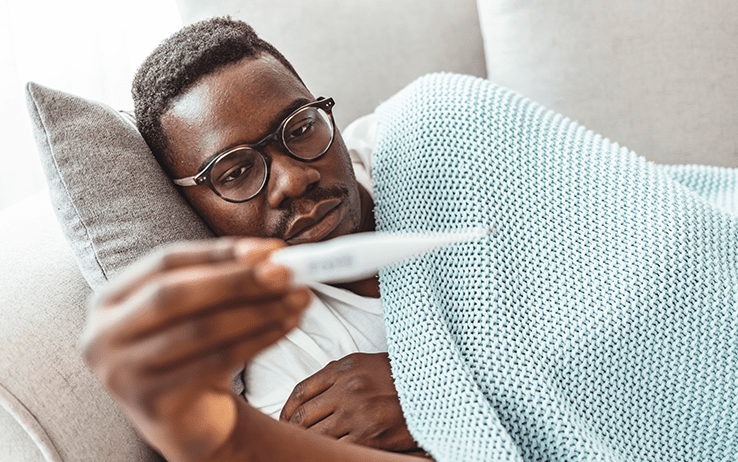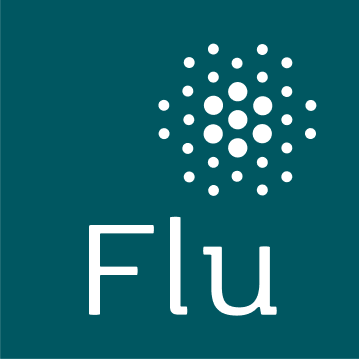Vaccines help in flu prevention, but they also help protect against serious flu complications
We know that getting a flu shot can help in preventing the flu. But if you get the flu after having a flu shot, does it mean that your flu shot didn’t work?
The short answer is no. Getting a flu shot can help prevent the flu—and it can also help protect you against serious complications from the flu, if you still catch the flu after your flu shot.
But how can both things be true? And is it worth getting a flu shot even if you still might get the flu?
Flu prevention: Does the flu shot prevent the flu?
Yes, it can. Each flu season, the Centers for Disease Control and Prevention (CDC) runs studies that investigate how well flu vaccines are working that year. Recent studies have shown that flu shots can reduce the risk of getting sick from the flu by 40% to 60%.
The reason for this wide range is that study results can depend on many things. These include how the study is designed, what outcomes are measured in the study and which groups of people were studied. (Age and health can affect how well a flu shot can protect you from the flu.) Study results can also depend on the flu season, because each one is different.
Additionally, flu vaccines contain antigens, which are proteins on the surface of a flu virus that can cause your body to develop antibodies that will fight the flu. Studies on flu vaccine effectiveness can be affected by how well flu vaccine antigens match the circulating flu viruses, too.
While flu shots do not provide a 100% guarantee that you will not get the flu, the preventive effects that they can provide are important, given how serious the flu can be.
Children, people who are age 65 years and older and pregnant people are among those who are at higher risk for serious complications from the flu. Getting yourself a flu vaccine can help you avoid spreading the flu to these people. Babies who are under 6 months old cannot get a flu shot, so getting a flu vaccine can help protect them from the flu, too.

Flu protection: If you still get the flu after a flu shot, how does the flu shot protect you?
If you get a flu shot and still get the flu, your vaccination can still keep you from getting severely ill.
That might not seem important, but the flu can cause severe illness that goes far beyond mild symptoms.
The Centers for Disease Control and Prevention (CDC) has provided some early estimates on how the flu affected people, otherwise referred to as the burden of flu. These estimates suggest that the flu caused 14,000,000 medical visits, 360,000 hospitalizations, and 21,000 deaths in the 2022–2023 flu season. In that same season, flu vaccination prevented an estimated 66,000 hospitalizations, according to CDC Director Mandy K. Cohen in a recent news conference.
Several studies in recent years also have shown how getting a flu shot can reduce the severe outcomes that flu can have. For example:
- Results from a 2022 study showed that flu vaccination reduced children’s risk of severe, life-threatening flu by up to 75%
- A study in 2018 showed that from 2012 to 2015, adults who received a flu vaccine reduced their risk of ICU admission due to the flu by 82%
- Most recently, a study published in November 2023 showed that in the 2022–2023 flu season, vaccination reduced the risk of emergency department or urgent care visits by almost 50% in children and adolescents
Getting your flu shot each season can help prevent some of these serious events from happening, if you do get the flu. Also, because flu vaccines are designed to protect against four different flu viruses, flu shots can help protect you from the other three strains of flu that you haven’t already had or that may circulate later in the season.
If you’re hesitating over whether to get a flu vaccine or finding it hard to make time to get one, you’re not alone. You can help protect yourself against the flu through daily activities and healthy habits, such as avoiding close contact with people who get sick, washing your hands and disinfecting surfaces that might be contaminated with flu virus. However, the best way to prevent the flu and protect others from it is to get an annual flu vaccine.
Delaying a flu shot can mean you’re giving the flu opportunities to get you or other people sick or severely ill from the flu. Even if it’s later in the flu season, it’s never too late to get a flu shot as long as the flu is still in circulation. Talk to your doctor or pharmacist if you have questions about getting a flu shot.

